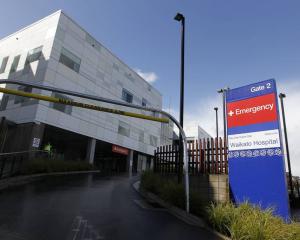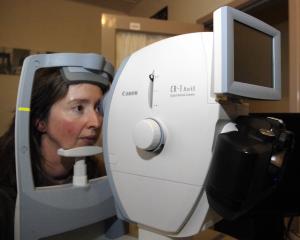Last-minute moves by the Otago District Health Board yesterday failed to placate Southland senior doctors critical of the proposed merger between the southern district health boards.
After a discussion lasting almost an hour, the Otago District Health Board voted unanimously yesterday for a merger with its Southland counterpart, but Southland will not debate the issue until next Thursday.
Recommendations from both boards will go to Health Minister Tony Ryall, who is expected to make a decision by February 18.
If there is to be a new Southern District Health Board, legislative requirements would need to be completed by April 30 for board elections in October.
The process is being opposed by 24 Southland senior doctors, who published an open letter to the Southland District Health Board chairman, Paul Menzies, yesterday saying the consultation has been inadequate and flawed.
Last-minute changes to chief executive Brian Rousseau's pro-merger recommendations were made at the meeting to address fears about provision of services from Southland Hospital.
The changes included a section endorsing the principles of the two boards' shared vision on services, noting they were essential for "ensuring the maintenance of sustainable clinical services at Southland Hospital".
The principles include putting the patient first, delivering services as close to home as practically possible and ensuring services are clinically and financially sustainable.
Speaking after the meeting, a spokesman for the 24 Southland senior doctors, Dr Charles Luecker, said the changes made to the recommendations did not address their concerns.
The doctors were not saying they did not want the merger, but the benefits and risks had to be properly discussed.
They were concerned at the potential disenfranchising in decision-making if Otago had four representatives and Southland three, when under the current collaboration the boards were effectively equal partners.
His personal hope was for a Southland referendum on the issue.
Yesterday, Mr Ryall said he was not prepared to issue any comment until he had received recommendations from both boards.
Otago chairman Errol Millar, who moved that the board recommend the change to Mr Ryall, praised all members for their "considerable personal commitment" on the issue. Former chairman Richard Thomson said members voting for the merger could be compared with turkeys voting for an early Christmas, but the fact members were keen to do this showed how important the issue was.
Susie Johnstone and Tahu Potiki, who are appointed members of both Otago and Southland boards, joined their Otago counterparts to speak for the merger.
Peter Barron said rather than Southland services being at risk from the merger, he saw opportunity for them to be enhanced.
Dr Malcolm Macpherson said much of the debate had centred on services in Invercargill and Dunedin, but some of the bigger gains would be in the hinterland.
That would be the case in the Queenstown-Lakes and Central Otago areas, where the board boundaries had prevented a collaborative and co-operative approach in the past.











